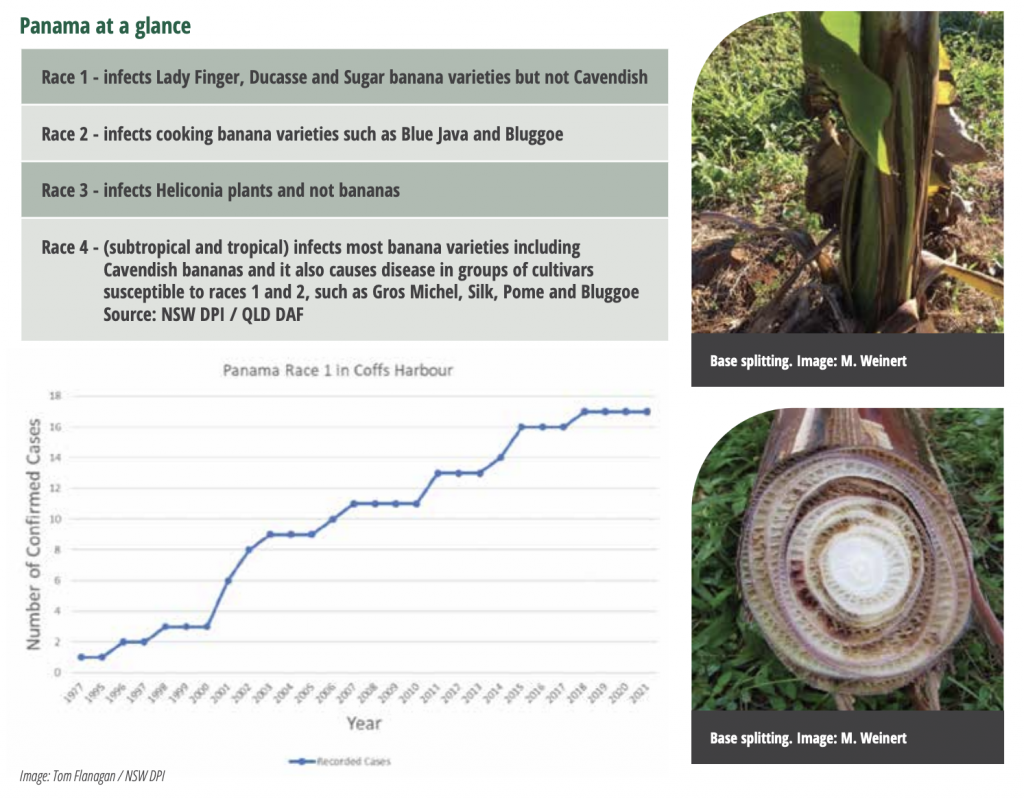Information in this article is courtesy of Tom Flanagan / NSW Department of Primary Industries
In the Australian banana industry, the word Panama is often used to describe one thing: the devastating Tropical race 4 (TR4). While Far North Queensland, home to 94% of Australian production, guards itself against the spread of this disease, some growers in subtropical regions have been battling Panama subtropical race 4 and Panama race 1 for many years.
Race 1 came under the spotlight earlier this year, with Coffs Harbour media reports highlighting the ongoing need for biosecurity management required by Ducasse and Lady Finger growers which are susceptible to this particular strain.
In response, NSW Department of Primary Industries Development Officer Tom Flanagan, hosted workshops in Coffs Harbour and Macksville detailing the various races, with a focus on race 1.
The first confirmed case of race 1 in Coffs Harbour was detected in 1977, with the next 20 years later. Since 1997, an average of one new farm tests positive for Race 1 every two years. There are now 17 confirmed cases. Both race 1 and subtropical race 4 are considered established in NSW. They are therefore not regulated, but instead managed under the General Biosecurity Duty found in the NSW Biosecurity Act 2015.
Race 1 spreads in the same way as TR4 – that is, easily and quickly.
A single speck of infected soil on a boot or wheel is all it takes.
“Biosecurity is key,” said Mr Flanagan. “It’s the tried and tested message of ‘Come Clean, Leave Clean’, with the aim of limiting the movement of plant material, soil and water on and off your farm.”
NSW banana growers can contact Mr Flanagan for one-on-one support in managing Panama disease and other biosecurity issues on their farms.
A variety of resources are available from the Queensland Department of Agriculture and Fisheries, the NSW Department of Primary Industries and the Australian Banana Growers’ Council. New South Wales growers can also access farm biosecurity signs for their farms by contacting their Local Land Services office.

